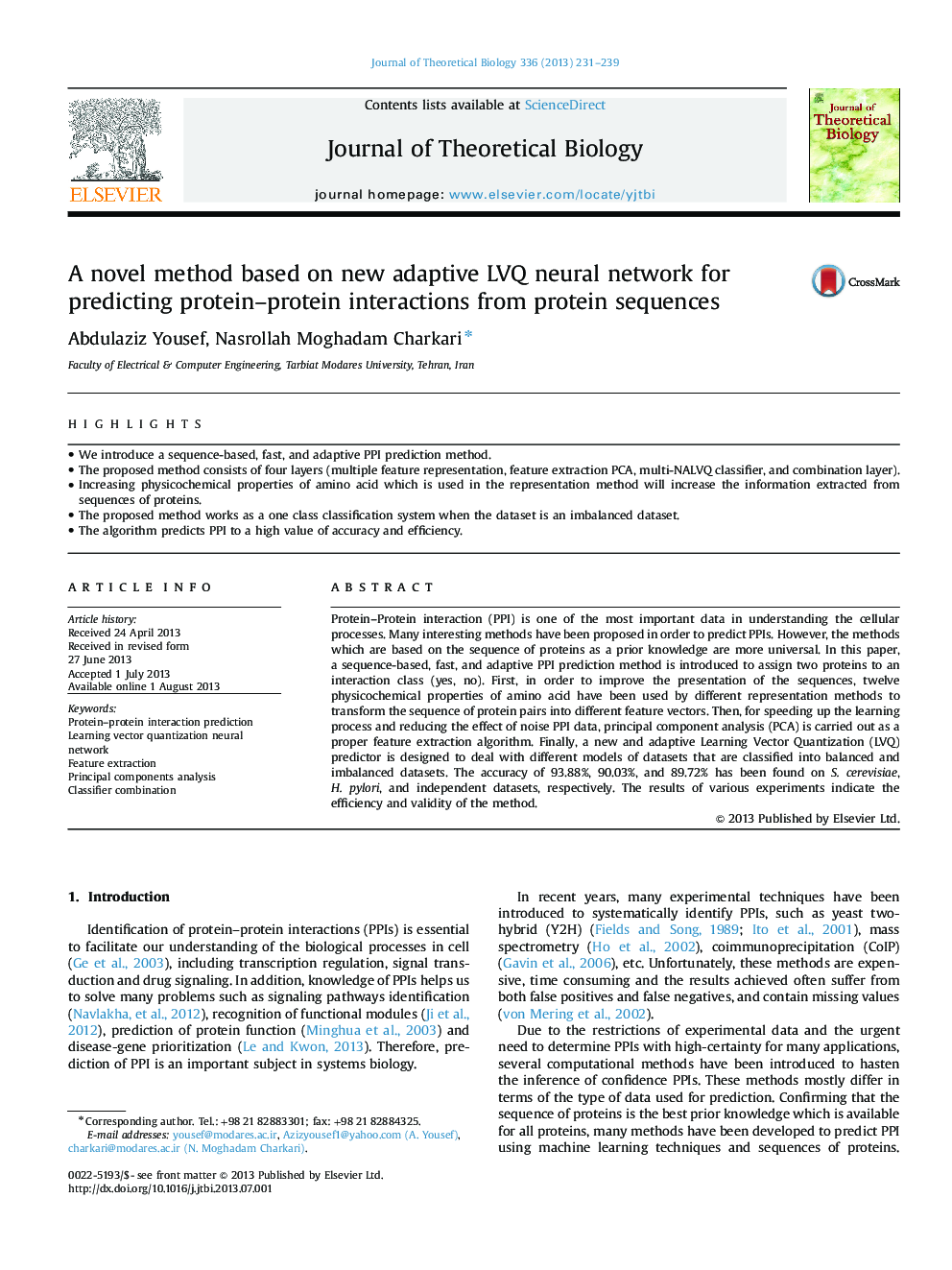| Article ID | Journal | Published Year | Pages | File Type |
|---|---|---|---|---|
| 6370832 | Journal of Theoretical Biology | 2013 | 9 Pages |
Abstract
Protein-Protein interaction (PPI) is one of the most important data in understanding the cellular processes. Many interesting methods have been proposed in order to predict PPIs. However, the methods which are based on the sequence of proteins as a prior knowledge are more universal. In this paper, a sequence-based, fast, and adaptive PPI prediction method is introduced to assign two proteins to an interaction class (yes, no). First, in order to improve the presentation of the sequences, twelve physicochemical properties of amino acid have been used by different representation methods to transform the sequence of protein pairs into different feature vectors. Then, for speeding up the learning process and reducing the effect of noise PPI data, principal component analysis (PCA) is carried out as a proper feature extraction algorithm. Finally, a new and adaptive Learning Vector Quantization (LVQ) predictor is designed to deal with different models of datasets that are classified into balanced and imbalanced datasets. The accuracy of 93.88%, 90.03%, and 89.72% has been found on S. cerevisiae, H. pylori, and independent datasets, respectively. The results of various experiments indicate the efficiency and validity of the method.
Related Topics
Life Sciences
Agricultural and Biological Sciences
Agricultural and Biological Sciences (General)
Authors
Abdulaziz Yousef, Nasrollah Moghadam Charkari,
